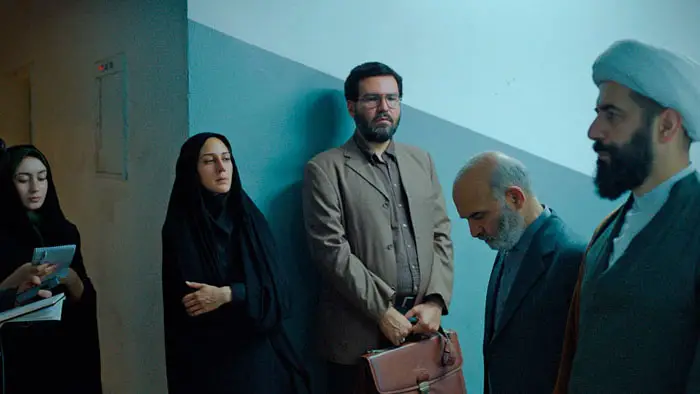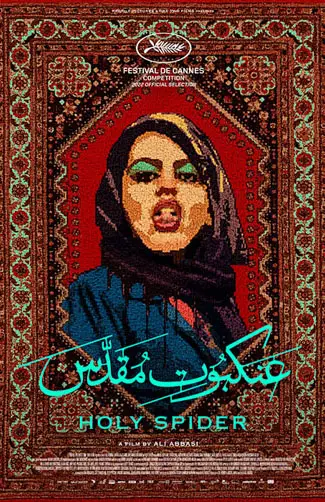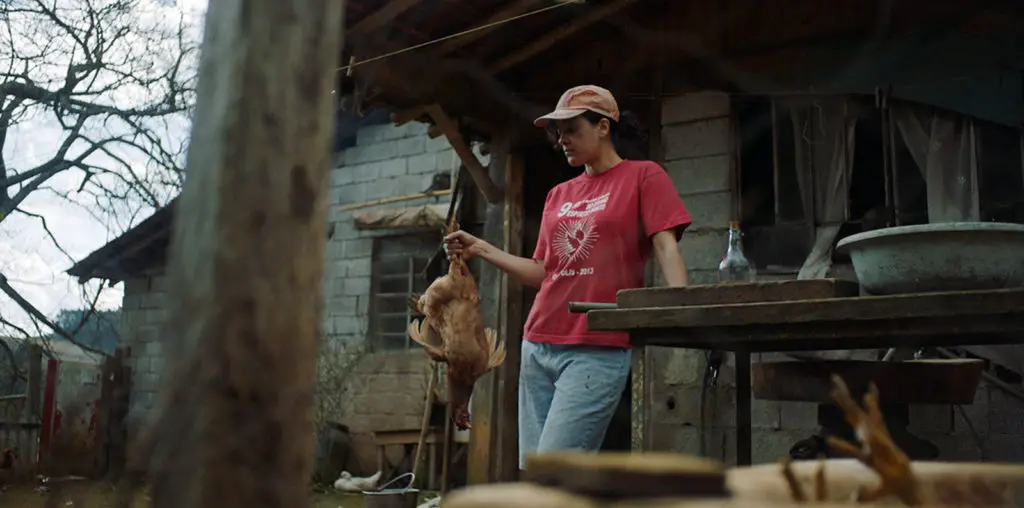
TORONTO INTERNATIONAL FILM FESTIVAL 2022 REVIEW! The opening of Holy Spider breaks one of the “rules” of filmmaking profoundly and to great effect. The first person we meet and get to know isn’t a protagonist or antagonist but a prostitute living in Mashhad, Iran, circa 2001. She’s trying to raise enough money for her and her kid to get by. As she tucks the child into bed, she promises she’ll be back soon. This is a promise she will not keep. We see her graphically doing her work — what she’s willing to put up with, what she isn’t, and her fears, which she can see in a world of shadows, both metaphorical and physical. She makes one decision a split second too late, and before the titles, our hearts are already broken wide open. This idea of putting the victims front and center lies right at the heart of what makes writer/director Ali Abbasi and co-writer Afshin Kamran Bahrami’s crime drama so special.

“…a journalist trying to cover the killings against the headwinds of a society…”
The real protagonist here is Rahimi (Zar Amir-Ebrahimi), a journalist trying to cover the killings against the headwinds of a society that has everything stacked against her. She can barely get a hotel because she’s unmarried. Everyone suspects her of being a tramp, even though she left her previous job because her boss was a sexual harasser. Rahimi’s editor won’t let her write about the religious angle to the story (which is the whole thing), and the police are doing little but try to get her into bed. All the while, the clerics are saying the right thing in public, but anything else in private. There is a massive undercurrent in society that sees the serial killer as a hero for cleaning the streets of corrupted women.
Meanwhile, the killer, Saeed (Mehdi Bajestani), isn’t a mysterious menace lurking in the shadows. Instead, we’re introduced to him and his family. He’s a fully fleshed-out human, the kind of guy you’d never suspect if you ran into him on the streets. Saeed has a wife, a son, and a daughter and is well respected in the local community as an ex-military man now in business. But at night, we see him more illuminated as he brutally strangles women he deems to be of low moral virtue. As Rahimi pursues Saeed, we sense that she is in danger and he is not. She’s suspected at every turn, while he operates carelessly, with near impunity. To say much more would give away the second half, but even when you can see the themes play out so vividly, there are surprises.

"…symbolic of a corrupted, misogynistic society."


